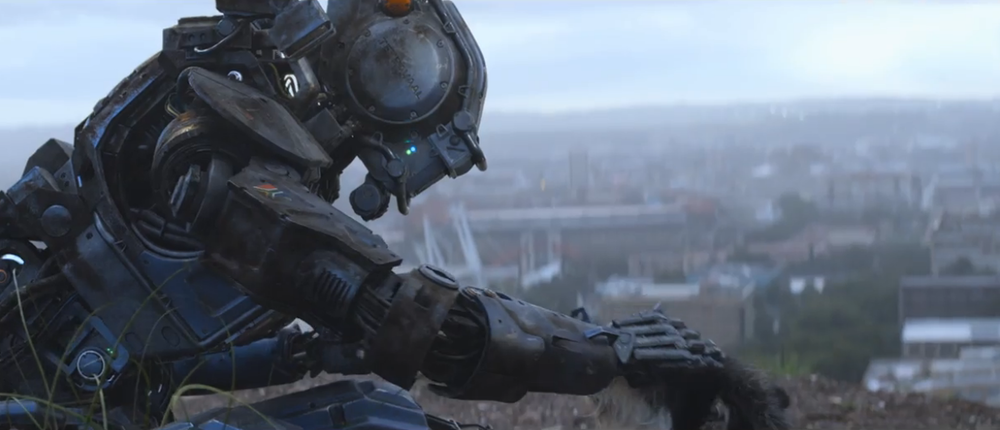
Robohub.org
Does your drone have a ‘remote’? Canada’s definition of autonomous operations is a scene out of Chappie

image: Sony Pictures
Chappie, the new robo-film on the block, takes place in Johannesburg, where the police force is made up of robots. In one of the early scenes, the main characters, Die Antwoord’s Ninja and Yolandi take part in a drug deal that is raided by robot cops. Hoping to avoid a similar fate in their next deal, Yolandi suggests that they find the robots’ remote so that they can switch them off like TV sets. Do the robots have a remote? And do Ninja and Yolandi find it? No spoilers here, but let’s take up the underlying question in the context of drone regulations…
Should devices with remote control be considered autonomous?What is Canada’s position on autonomous and automated operations? Does your drone have a ‘remote’? If it does, according to Transport Canada, it is not an autonomous drone. Transport Canada defines an autonomous drone as one that does “not allow pilot intervention in the management of the flight.” It is not enough for an autonomous drone to be capable of self-governance, rather it must not allow for any possibility of human intervention.
What about drones that have a remote but can complete automated tasks such as take-offs or landings or that can execute pre-defined waypoint operations? Transport Canada distinguishes these drones from autonomous drones by pointing to the fact that they require operator initiation or intervention.
Although there is no express prohibition, truly autonomous operations are outside of the scope of Canada’s current regulations. For the time being, if your drone doesn’t have a remote, you wouldn’t be able to operate. Our framework permits operations that involve automation, but it requires that an operator have the capability to intervene – or rather, as Ninja and Yolandi would hope – your flying robot must have a remote.
tags: c-Aerial, Canada, Chappie, drone regulation, drones, UAVs




